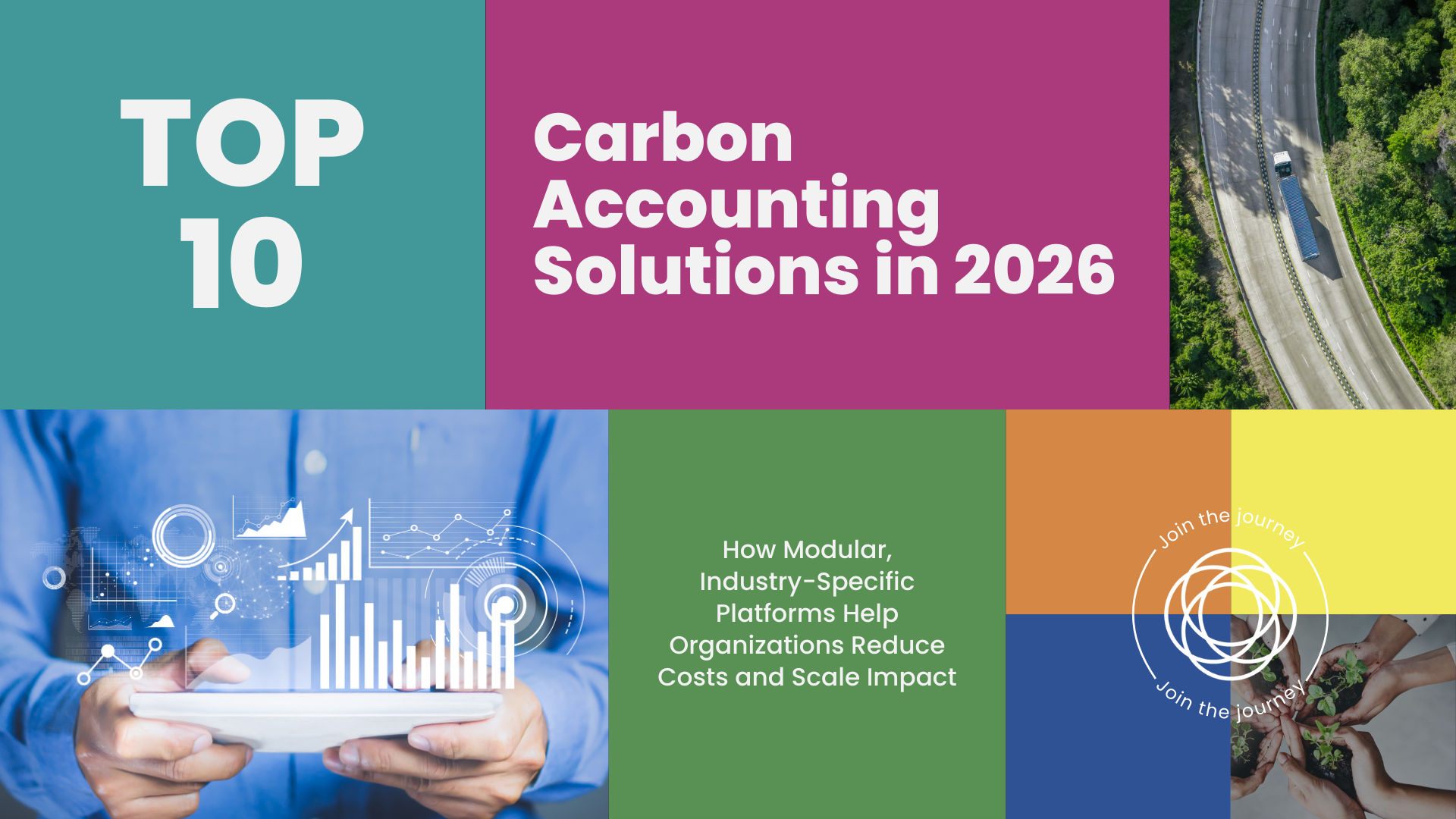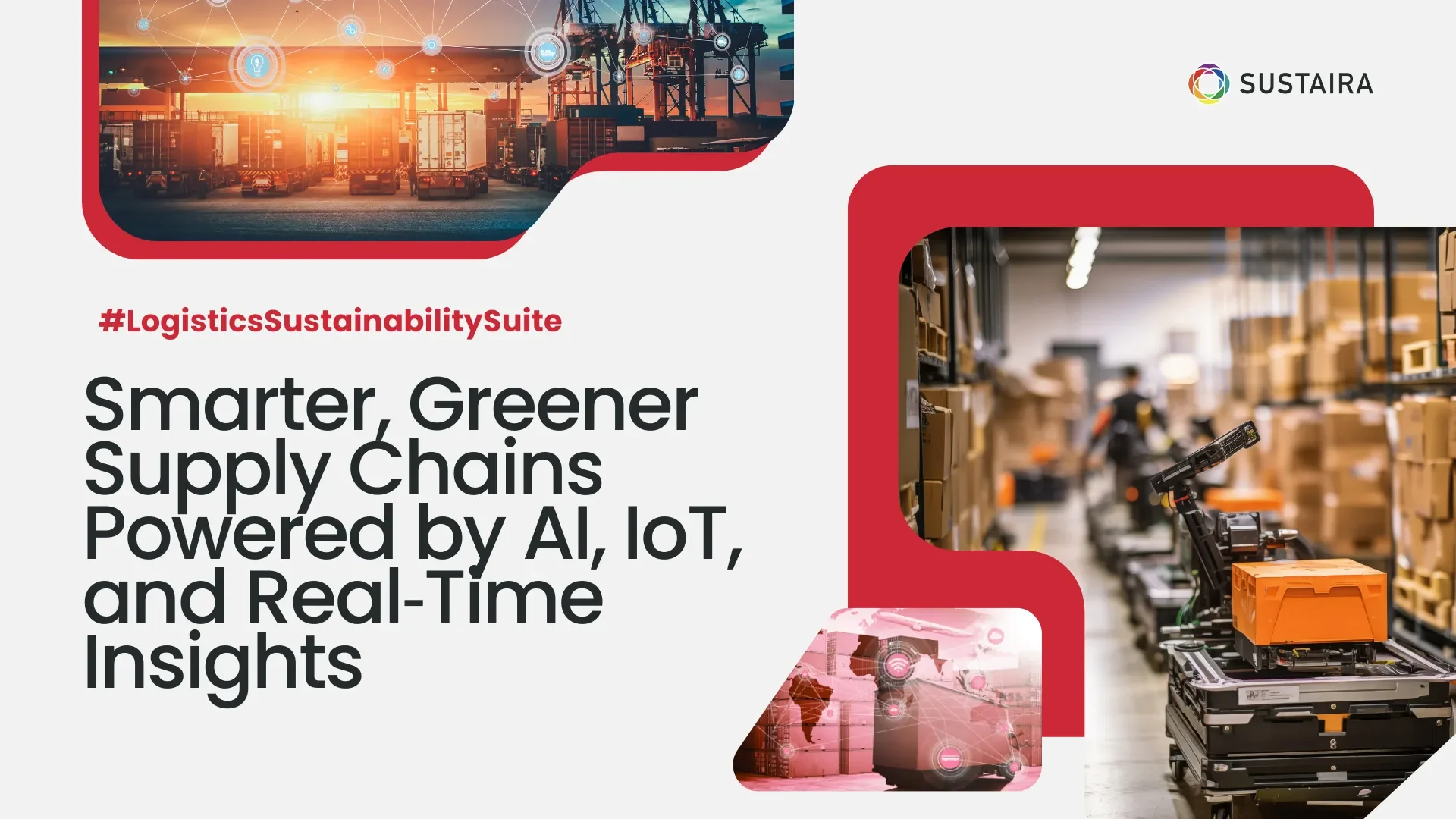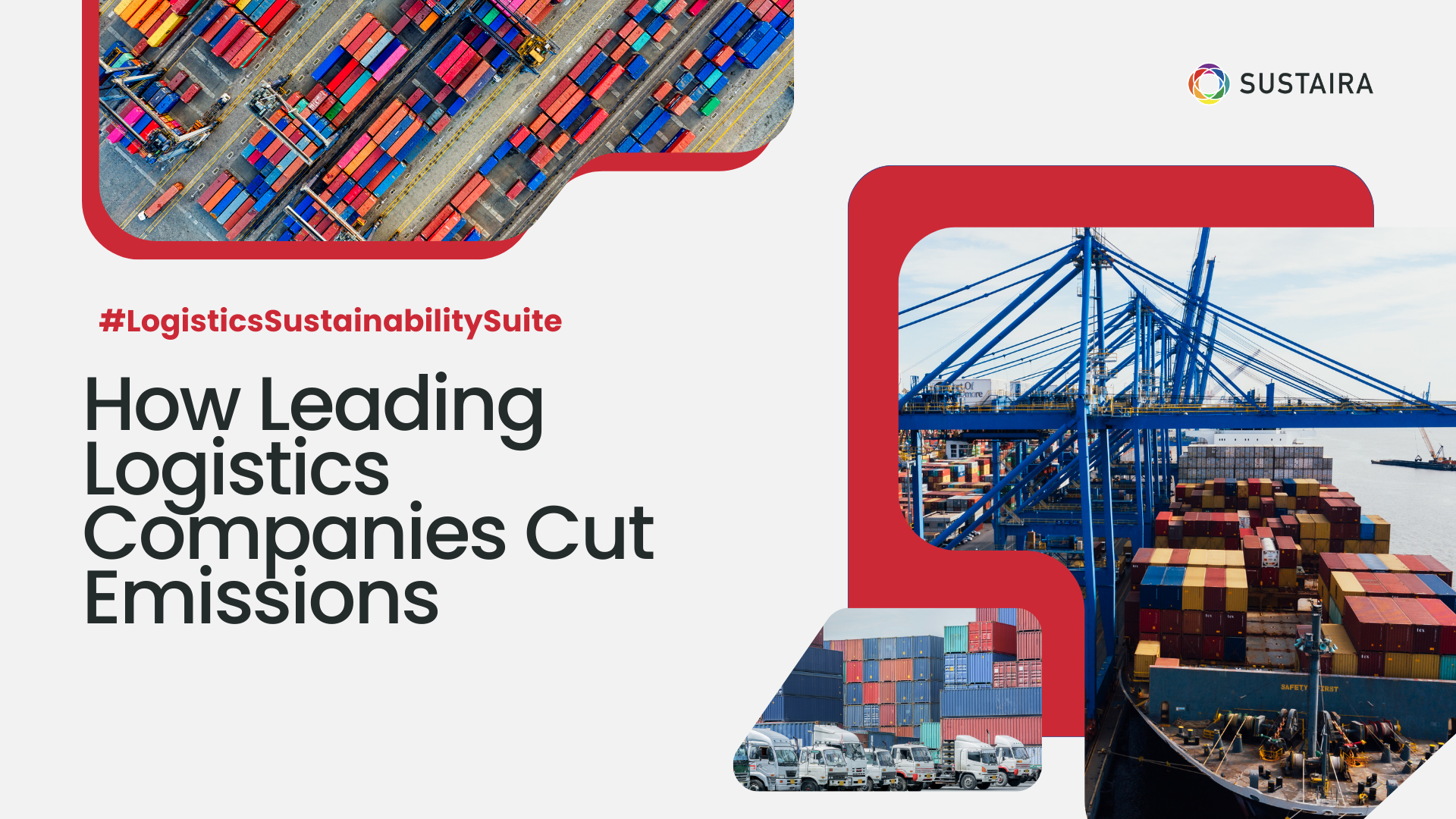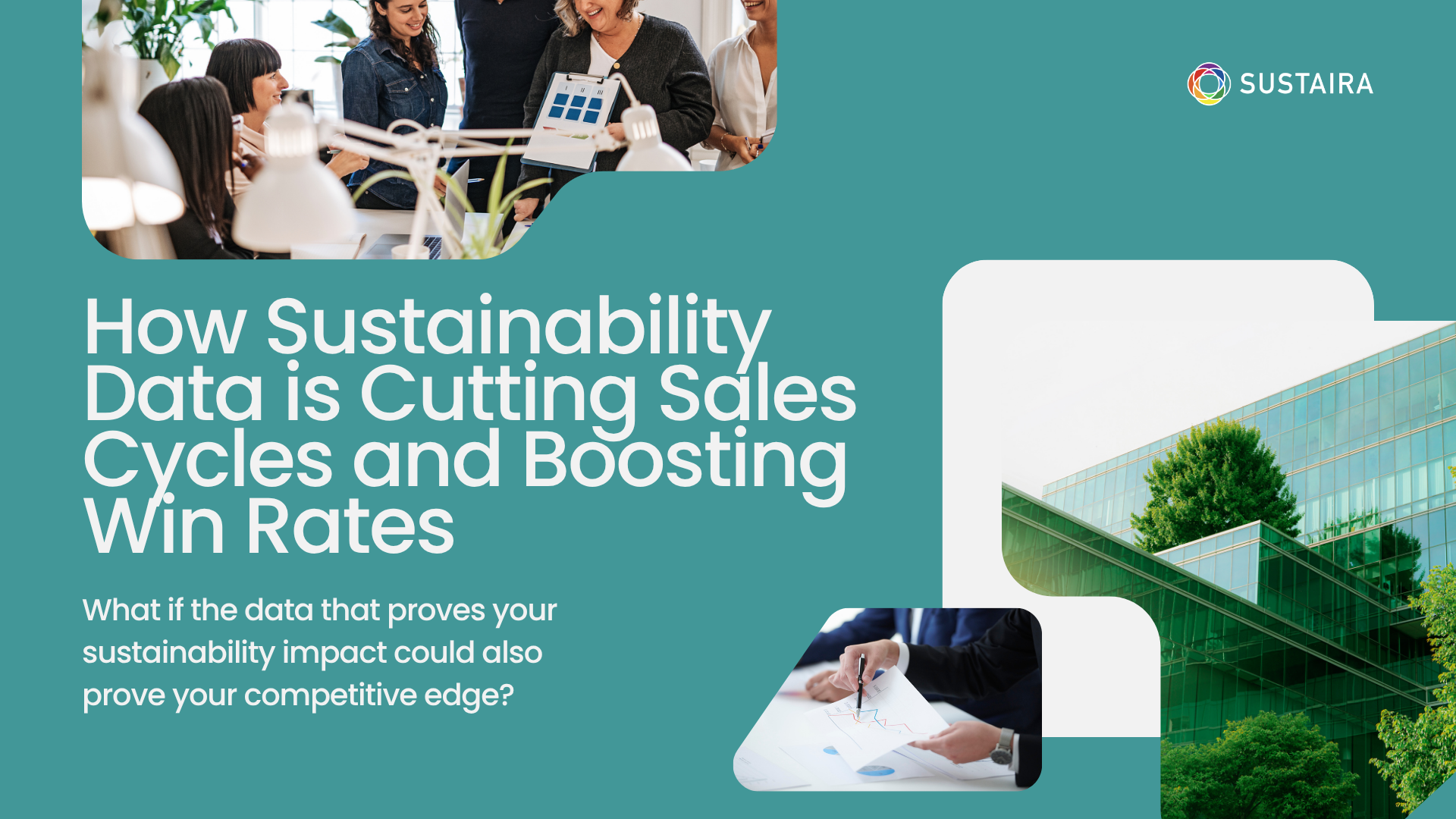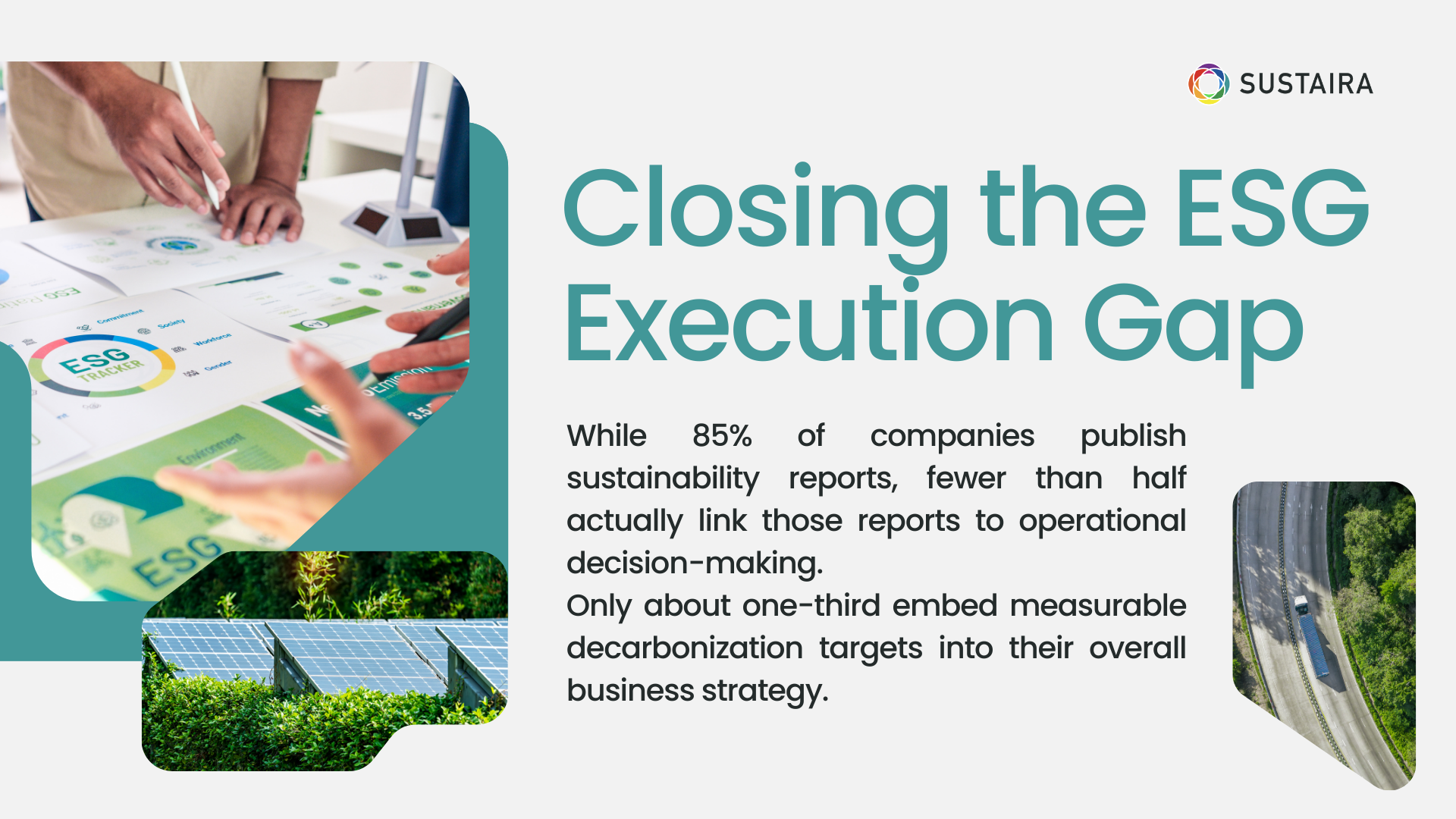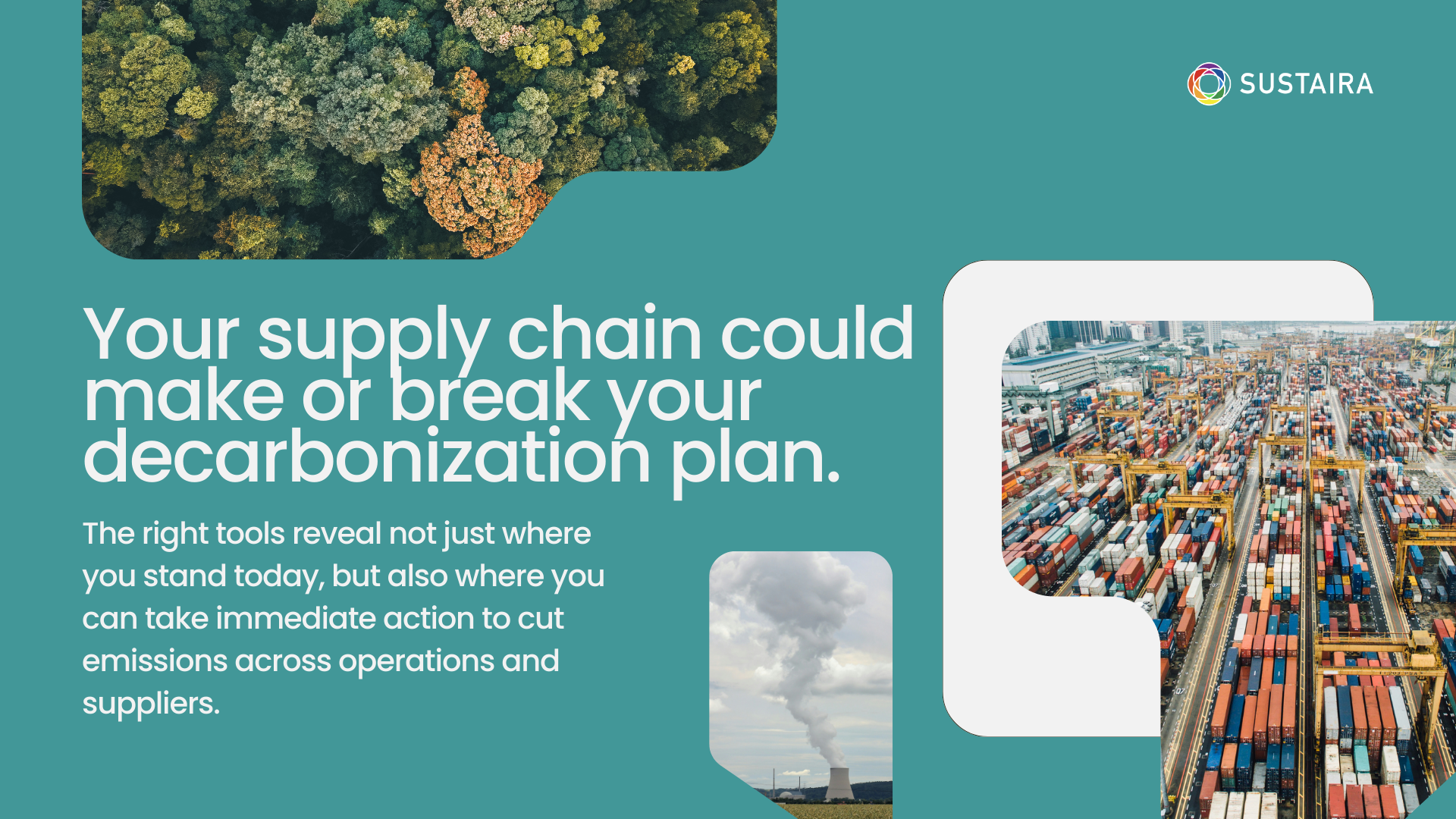The latest from Sustaira.
SBTi Target Setting 2.0: What Enterprises Need to Know Now
Setting Science-Based Targets (SBTi) is now a key expectation for large enterprises. Investors, regulators, and stakeholders increasingly scrutinize climate commitments, demanding transparency, credibility, and measurable progress. Yet many organizations struggle to translate these commitments into actionable strategies.
Spain Strengthens Climate Regulations with Royal Decree 214/2025
Spain’s Real Decreto (Royal Decree) 214/2025 is set to start on June 12, 2025, strengthening climate regulations through emissions tracking, reporting, and transparency. Carbon footprints and emission reduction plans will now be mandatory for large companies and public entities.

